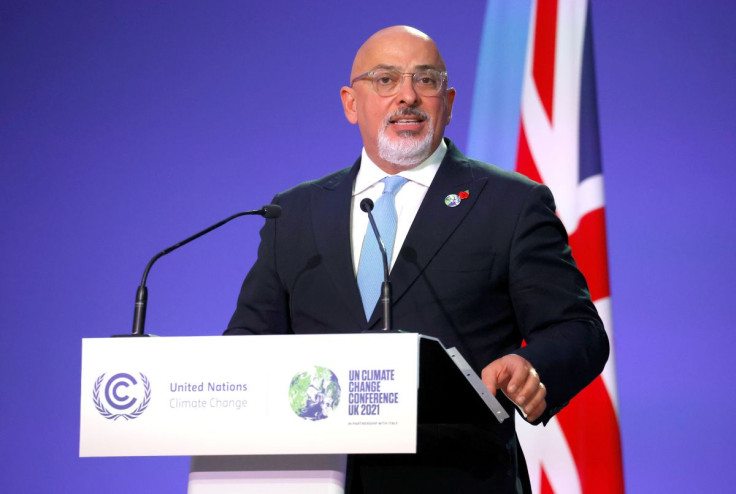New UK Finance Minister Zahawi Pledges To Boost Economy

Britain's new finance minister Nadhim Zahawi pledged on Wednesday to rebuild and grow the struggling economy and said he would look at all policy options, including possible tax cuts.
Zahawi, who took over the Treasury on Tuesday after the resignation of Rishi Sunak in protest against embattled Prime Minister Boris Johnson, said "nothing is off the table".
But the former education minister also faced questions about whether he would even have a chance to steer the economy out of its slowdown, given Johnson's weakening grip on power.
Among other government ministers to quit were health minister Sajid Javid and junior finance minister John Glen, who was responsible for the City of London.
Britain's economy has lost momentum as inflation heads for double-digits and, and growth is forecast to be weaker than other big industrialised economies next year.
Bank of England chief economist Huw Pill said he did not expect any economic growth over the next year or so, as households faced the highest inflation in 40 years.
Britain is also struggling to adjust to life after Brexit.
Economists said Zahawi's appointment and the possibility of a new prime minister both raised the prospect of faster growth, and possibly more interest rate hikes by the BoE in response.
"The potential medium-term gains might make the near-term stasis caused by a new Tory leader contest worth it," Samuel Tombs, chief UK economist with Pantheon Macroeconomics, said.
He said a more pragmatic approach to relations with the European Union would lift exports and investment by companies.
TAX CUTS TO COME?
Zahawi, widely credited in the Conservative Party for successfully overseeing Britain's COVID-19 vaccine rollout, said 2023 was shaping up to be "really hard".
Zahawi hinted at moves to ease taxes on individuals and a rethink of Sunak's plan to raise taxes on businesses next year.
"Nothing's off the table. I will look at everything. When boards invest, companies invest, they invest for the long term and they do compare corporation tax rates," he told Times Radio.
Many Conservative lawmakers want tax cuts and Sunak had been looking at ways to boost lacklustre business investment.
The government was likely to have some room for tax cuts under official forecasts made in March. But since then, Britain's growth and inflation outlooks have worsened.
Zahawi said his priority was to fight inflation - something that could be aggravated by tax cuts - and he also stressed the need to fix the public finances after Sunak's 400 billion-pound ($479 billion) response to the coronavirus pandemic.
"We have just come out of the equivalent of a world war. We have to rebuild the economy and return to growth," he said.
Zahawi was appointed after Sunak quit the job in protest at Johnson's "standards" and citing differences over economic policy with the prime minister.
The opposition Labour Party said the political chaos was compounding the economy's problems.
"The pound is weak because the government is weak. And a weak pound means the costs of energy, the cost of petrol and diesel go up and up and up," said Rachel Reeves, Labour's would-be finance minister. ($1 = 0.8356 pounds)
(Additional teporting by William James, Farouq Suleiman and David Milliken; writing by William Schomberg and David Milliken, editing by Elizabeth Piper, Angus MacSwan and Bernadette Baum)
© Copyright Thomson Reuters 2024. All rights reserved.





















